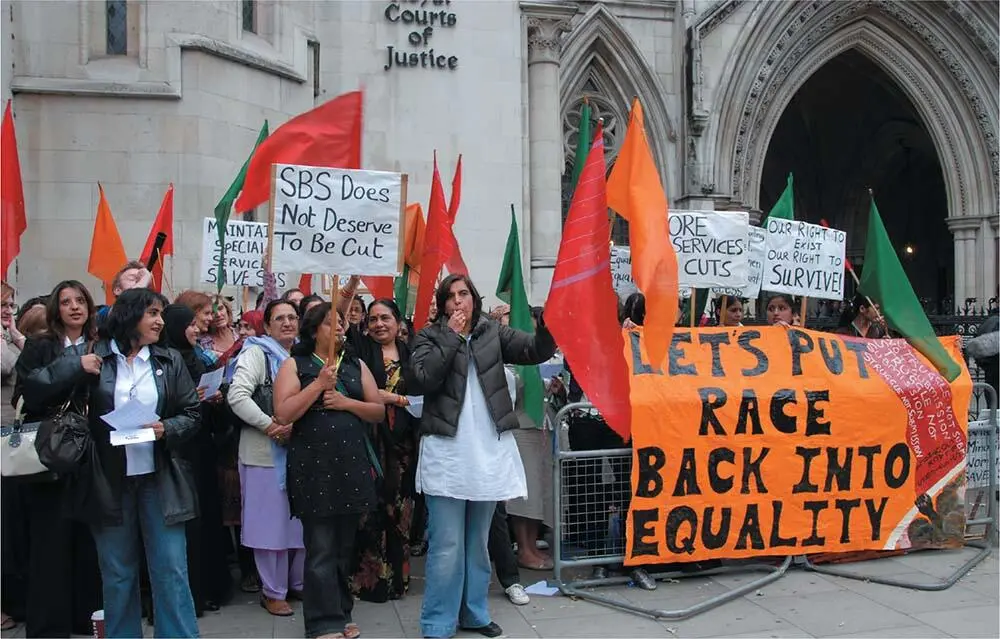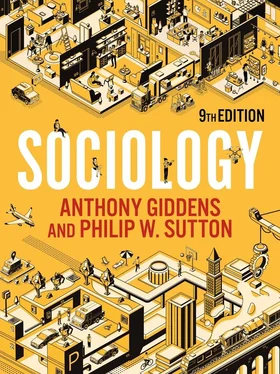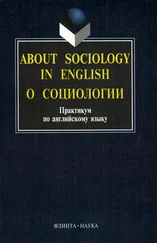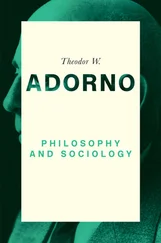Some feminist sociologists also called for a comprehensive reconstruction of the entire discipline, including the central problems that form its core, emphasizing the centrality of gender for any satisfactory analysis of the social world. In short,
The feminist challenge to malestream sociology is one that requires a radical rethink of the content and methodology of the whole enterprise; one that recognises the need, not simply to see society from the standpoint of women as well as from the standpoint of men, but to see the world as fundamentally gendered. (Abbott et al. 2005: 3)
How far sociology has moved in this direction is contentious. For instance, as late as 2003, Sara Delamont still argued that her battle to get mainstream sociologists to acknowledge feminist theorizing was ‘far from won’ (Delamont 2003: ix). Yet it is also the case that there are many disagreements across feminist perspectives on just how issues of gender should or can be theorized. ‘Feminist theory’ is a term covering an increasing range of positions, with at least six or seven different perspectives. These range from early theories of liberal, socialist/Marxist and radical feminism, through dual-systems and critical feminism, to postmodern/poststructuralist, black and postcolonial feminism. Most of these perspectives are discussed in more detail in chapter 7, ‘Gender and Sexuality’.
The diversity of feminist theories makes it impossible to speak of a single or unified ‘feminist theory of society’, but we can say they all agree that knowledge is related to questions of sex and gender and that women face oppression in patriarchal societies. However, theoretical explanations of women’s position differ, sometimes quite markedly. For example, while radical feminists see patriarchy as the main source of oppression, dual-systems theorists argue that both patriarchy and capitalism combine to reproduce male dominance. Black feminism both insists that race, racism and ethnicity need to be part of feminist theorizing and criticizes earlier theories for assuming that all women have essentially similar interests despite their radically divergent living conditions.
Because men and women have different experiences and view the world from different perspectives, they do not construct their understandings of the world in identical ways. Feminists often argue that malestream sociological theory has denied or ignored the ‘gendered’ nature of knowledge, producing supposedly universal conclusions from the specific experience of (usually white) men. As men conventionally occupy the main positions of power and authority in most societies, they have an investment in maintaining their privileged position. Under such conditions, gendered knowledge becomes a vital force in perpetuating established social arrangements and legitimating continued male domination.
Some feminist scholars influenced by poststructuralist or postmodern thinking (discussed below), including Donna Haraway (1989, 1991), Hélène Cixous (1976) and Judith Butler (1990, 1997, 2004), have argued that it is a mistake to suppose that either ‘men’ or ‘women’ are even distinct groups with interests or characteristics. According to Butler (2004), gender itself is not a fixed category or an essence, but something fluid that is exhibited through what people do rather than what they are . If, as Butler (1990) argues, gender is something that is ‘done’ or performed, then it is also something that can be ‘undone’ when it is used by one group to exert power over another (see chapter 12, ‘Social Interaction and Daily Life’).
Is there, in fact, any essential gendered being at all, or is ‘gender’ in a constant process of social construction with no fixed biological foundations? Such foundational questions illustrate how far feminist thinking has travelled, though some see these matters as of secondary importance to tackling inequality and improving the material conditions of life for women, particularly in developing countries (Shiva 1993). Rahman and Jackson (2010: 81) argue that
We live today within a global context characterized by extremely stark and worsening inequalities – and it is often women who are most disadvantaged by the intersections between global and local exploitation … Differences among women are not merely ‘cultural’; the most significant of them are founded upon real, material inequalities deriving from institutionalized racism, the heritage of centuries of slavery, colonialism and imperialism and local and global divisions of labour.
Feminist theory has developed markedly since the 1970s, and some of the themes pursued today are quite different from the material feminism that emerged within ‘second-wave’ feminist movements. However, what these differing perspectives show is that feminist thinking has not stood still but continues to develop and expand into new areas.

Black feminism – both within academia and in social activism, such as the Southall Black Sisters shown here – challenges the idea that all women share similar experiences and have the same interests.

Feminist movements are discussed further in chapter 20, ‘Politics, Government and Social Movements’.
Increasing recognition of the diverse experiences of women and gender fluidity has generated new debates within feminism. But if the central categories of ‘men’ and ‘women’ are themselves undergoing challenge, what does it mean to be a feminist today?
Poststructuralism and postmodernity
Michel Foucault (1926–84), Jacques Derrida (1976, 1978) and Julia Kristeva (1984, 1977) are the most influential figures in an intellectual movement known as poststructuralism. However, Foucault’s ideas have had the most influence on sociology and the social sciences. In his writings on crime, the body, madness and sexuality, Foucault analysed the emergence of modern institutions, such as prisons, hospitals and schools, that have played an increasing role in monitoring and controlling the population. He wanted to show that there was a darker side to Enlightenment ideals of individual liberty – one concerned with discipline and surveillance. Foucault advanced important ideas about the relationship between power, ideology and discourse in modern organizational systems.
The study of power is of fundamental importance in sociology, and Foucault continued some of the lines of thought pioneered in classical sociology. The role of discourse is central to his thinking, and he used the term to refer to ways of talking or thinking about particular subjects that are united by common assumptions. Foucault demonstrated, for example, the dramatic way in which discourses of madness changed from medieval times through to the present day. In the Middle Ages the insane were generally regarded as harmless, and some believed that they may even have possessed a special ‘gift’ of perception. In modern societies, however, ‘madness’ has been shaped by a scientific, medicalized discourse which emphasizes illness and treatment. This discourse is supported and perpetuated by a highly developed and influential network of doctors, medical experts, hospitals, professional associations and medical journals.

Foucault’s work is discussed in more detail in chapter 10, ‘Health, Illness and Disability’.
Читать дальше














